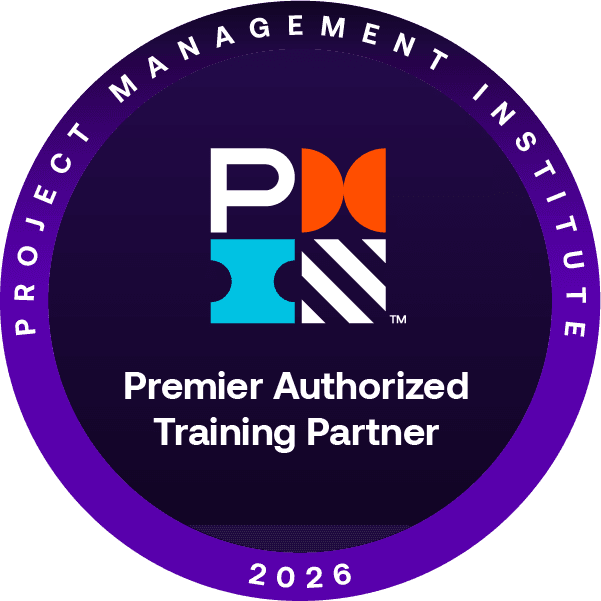
A PMI® Registered Training Course
Advanced Managing Project Control
Leading the Project through Appropriate Behaviours in Complex Situations

Scheduled Dates
Classroom
| 22-26 Jun 2026 | London - UK | $5,950 | RESERVE A SEAT |
| 07-11 Dec 2026 | Dubai - UAE | $5,950 | RESERVE A SEAT |
| 18-22 Jan 2027 | Dubai - UAE | $5,950 | RESERVE A SEAT |
Online
| 07-11 Dec 2026 | Online | $3,950 | RESERVE A SEAT |
Would an alternative date be more suitable?
We offer a variety of tailored training options, customized to meet your organisation's needs. Delivered anytime, anywhere, we make it easy to bring expert training directly to your team.
Why Choose this Training Course?
Fact: One failed project can potentially wipe out an entire year’s profit for any project-based organisation – let’s put the value of Project Controls into perspective
In the Oil & Gas or Petrochemical industries, increased technical and commercial complexity, coping with commercial, environmental and political cost and risk, provides oil and gas megaprojects with an environment of intense and growing stakeholder scrutiny.
This scrutiny highlights that despite increased recognition to the importance of project performance, a high percentage of projects fail to deliver on time or meet approved budgets. Recent research shows that the majority of mega-projects face delays and/or cost escalations and these overruns are prevalent in all segments and geographies of the industry – we must deliver improved performance in the delivery of its capital projects.
This interactive, collaboration-driven 5-day training course will highlight the added value that can be achieved when effective control mechanisms are applied using project management-based techniques proven to be crucial in Baseline Management. At an advanced level, we need to consider behavioural awareness towards setting and establishing a positive culture in terms of management and leading people, particularly when dealing with collective or “ripple-effects” of myriad requests from diverse stakeholders. This is where collaboration, stakeholder management, team roles and integration will come to the fore.
The Advanced Managing Project Control training course is extremely engaging and participants will be taught using a combination of instruction, facilitated discussion, and hands-on interactive exercises all based on a real-world project example case study related to a current mega-offshore project in the Oil & Gas industry. The exercises will include many individual and group activities presented in a workbook within the training manual - the exercises are designed to provide each participant with a visual application of the principles and practices discussed throughout the course and can become a useful reference tool on their return to the workplace.
This training course will highlight:
- Identify reasons that projects fail through lack of control
- Explore different types of control afforded through various lifecycle approaches
- Master techniques to control expectations through effective stakeholder management
- Learn how to create the right environment for project controls
- Driving performance behaviours and tools for measurement / oversight
- Understand which effective governance mechanisms will support planning, execution (change) and performance management
- Setting Project Controls - the key to a successful project
- Application of core planning techniques to enable management to control project scope, schedule, costs, uncertainty and quality
What are the Goals?
The aim of this training course is to assist participants in understanding the differences that they can make to any project in relation to their own specific skillset.
Participants will also learn how to:
- Integrate scope, time, resources and cost management into a dynamic, manageable plan
- Develop project network diagrams for CPM (Critical Path Method) and advanced PERT (Programme Evaluation Review Technique) calculations to identify schedule and cost risks
- Apply generally accepted schedule optimization techniques in order to address sponsor/customer/ market needs
- Maintain continuous project performance and delivery control
- Accurately estimate and allocate project costs and resources
- Measure, forecast and control project performance by employing earned value techniques
- Establish best-practice performance for team members and contractors through behaviour management
- Record actual project progress and use the project baseline to highlight and manage variance.
- Embody BIS 11000 Working Collaboratively
- Communicate project “trade-offs” clearly and set attainable goals with clients, managers, and project team members.
- Embrace the dynamic nature of many project environments through proactive change management
- Compress or accelerate the schedule when required by adverse circumstances
- Control adverse situations through proactive risk management techniques
- Produce clear and concise project progress reports
Who is this Training Course for?
This PetroKnowledge training course is suitable for professionals who now, or in the future, will be leading or be a part of a project team, but will greatly benefit:
- Associate project managers
- Project managers
- IT project managers
- Project coordinators
- Project analysts
- Project leaders
- Senior project managers
- Team leaders
- Product managers
- Program managers
- Project sponsors
- Project team member
How will this Training Course be Presented?
The facilitator will introduce each of the core topics using a variety of lecture and discussion. Presentations are supported by interactive exercises representing project controls interaction across different stages of the project life cycle which are based on a real-world project case study.
Their will be an introduction to elements of projects and the fundamentals of project management enabling delegates to reflect on how a project management framework supports and how the projects are supported in return by effective control processes.
Daily Agenda
Day One: Understanding How to Ensure Oil & Gas Projects Succeed
- Characteristics of Oil & Gas projects
- Fundamentals of project management
- Understand reasons Oil & Gas projects fail
- Starting with the end in mind – define success criteria
- Prepare the project team – Identify roles and responsibility
- Understand key challenges of Oil & Gas Project Teams
- Identify project Context & Stakeholders in a typical Oil & Gas project
Day Two: Getting Started - Using Core Planning techniques
- Product Scope planning – requirements collection & detailed specifications
- Project Scope planning – develop product and work breakdown structures
- Schedule planning – develop network diagram
- Schedule development – define critical path and available float
- Cost planning – utilise recommended estimation techniques
- Balance effort/duration and allocation
- Cost and Schedule – construction of the project baseline
Day Three: Mastering Collaboration and Communication Techniques
- Establishing behaviour management strategy for improved performance by all
- Establish individual and collective skills within your team
- Mastering communication techniques to manage stakeholder expectations
- Understand how BIS 11000 Working Collaboratively is used in Oil & Gas projects
- Recognise the need for Supply Chain Management in Oil & Gas projects
- Using Risk management to control Oil & Gas projects proactively
- Controlling adversity through effective response and contingency planning
Day Four: Monitoring and Controlling Project Performance
- Learn how to manage Issues through escalation and recommendations
- Applying schedule acceleration techniques that work in the Oil & Gas industry
- Utilising resource scheduling and availability conflict management techniques
- Controlling information - status reporting
- Measuring and reporting progress
- Establishing a useful project dashboard
- Understand how project information is presented to Oil & Gas clients or partners
- Using variance analysis for Earned Value Management
- Determining approach for managing cost and schedule reserves
- Creating forecasting to control project budgetary and schedule concerns
Day Five: Dealing with Changes and Project Recovery
- Managing changes correctly – avoiding project creep or the claims process
- Recognising the need for project recovery actions
- Working with the Project Recovery Team
- Preparing for pre-Commissioning / engaging for operations
- Management of project records and documentation at the end of an Oil & Gas project
- Identifying and applying lessons-learned techniques
- Controlling project close-out
Certificate
- On successful completion of this Training Course / Online Training Course, a PetroKnowledge Certificate / E-Certificate will be awarded to the delegates.
- On successful completion of this PetroKnowledge training course, Certificate with eligible Professional Development Units (PDUs) / Contact Hours from Project Management Institute (PMI®), will be awarded to the delegates
Accreditation



